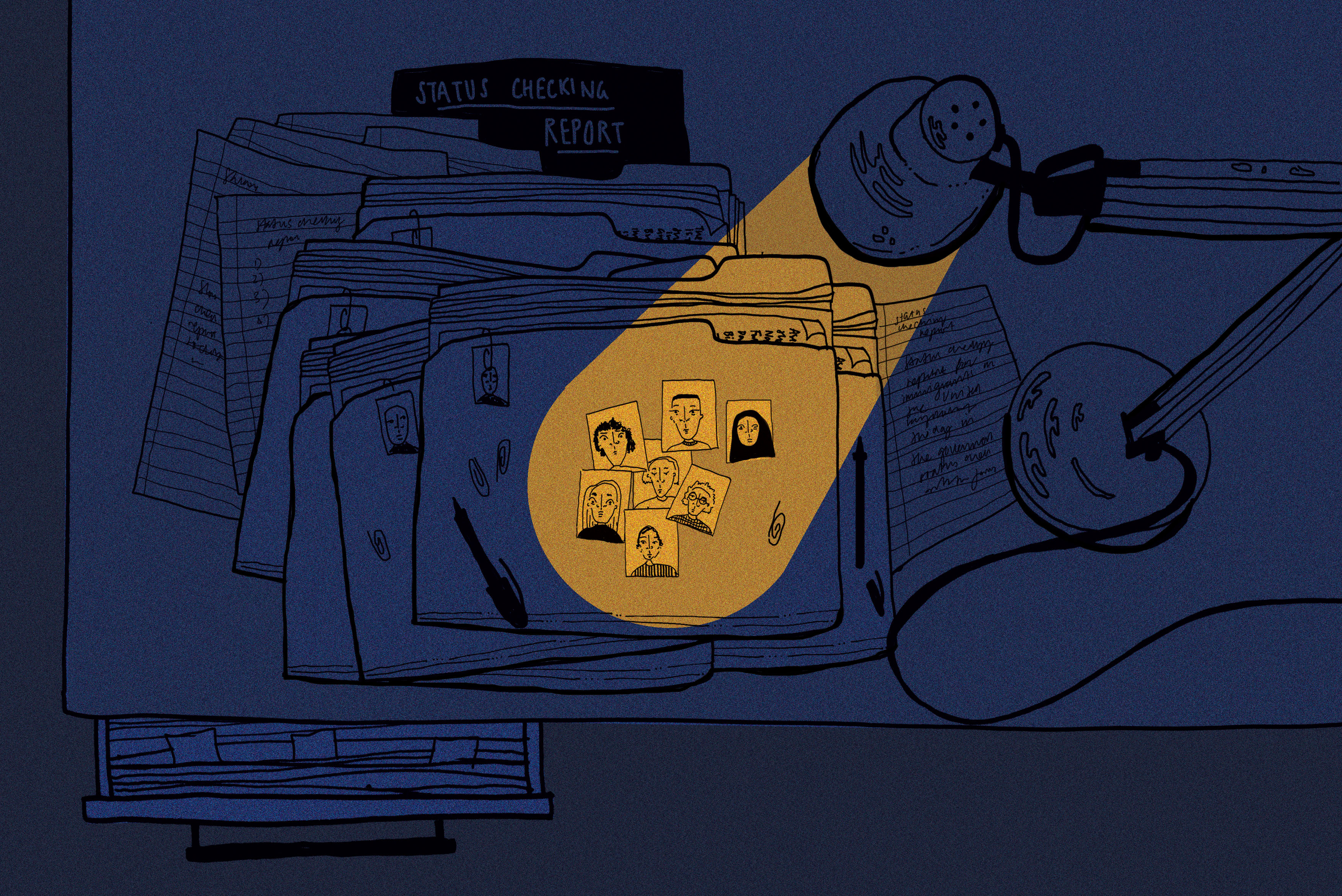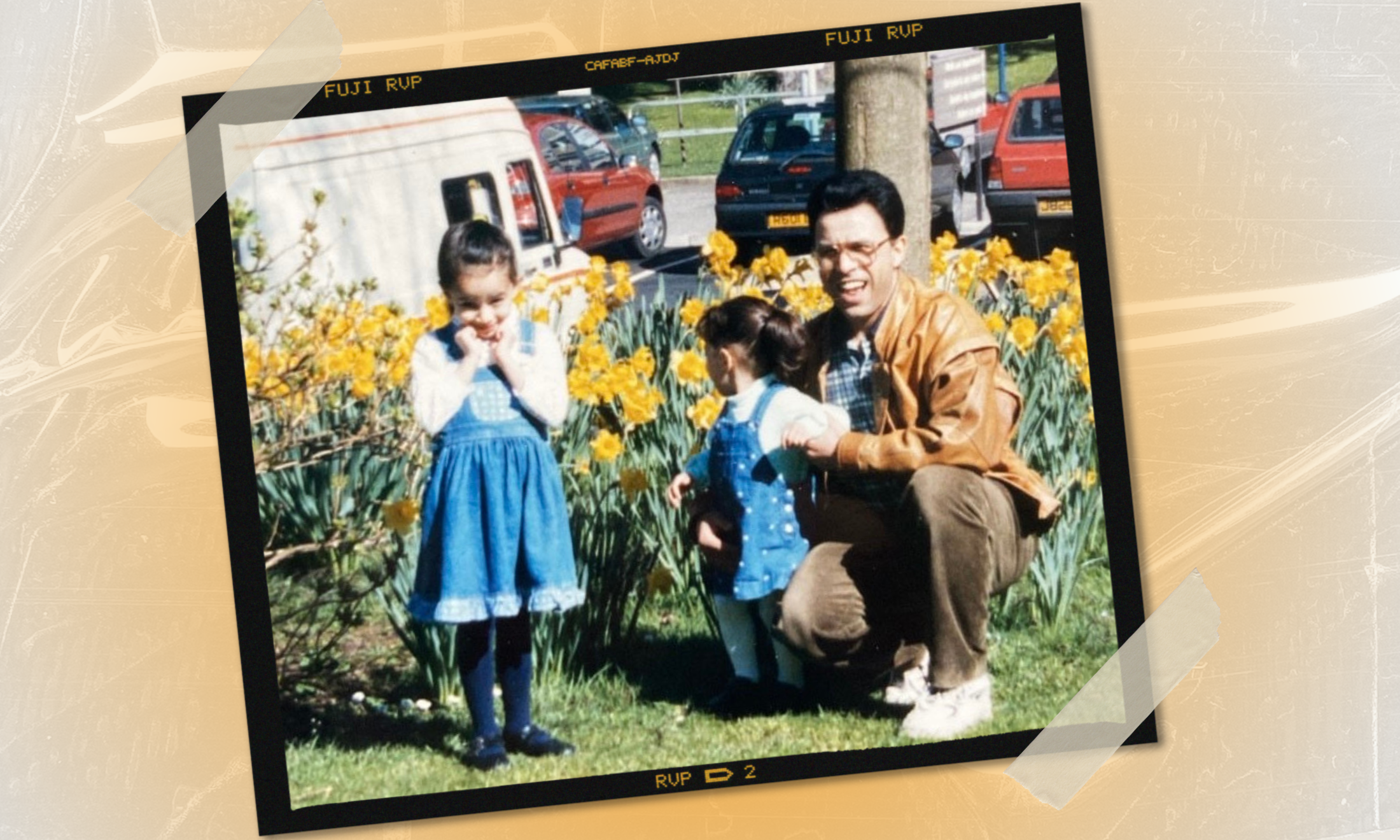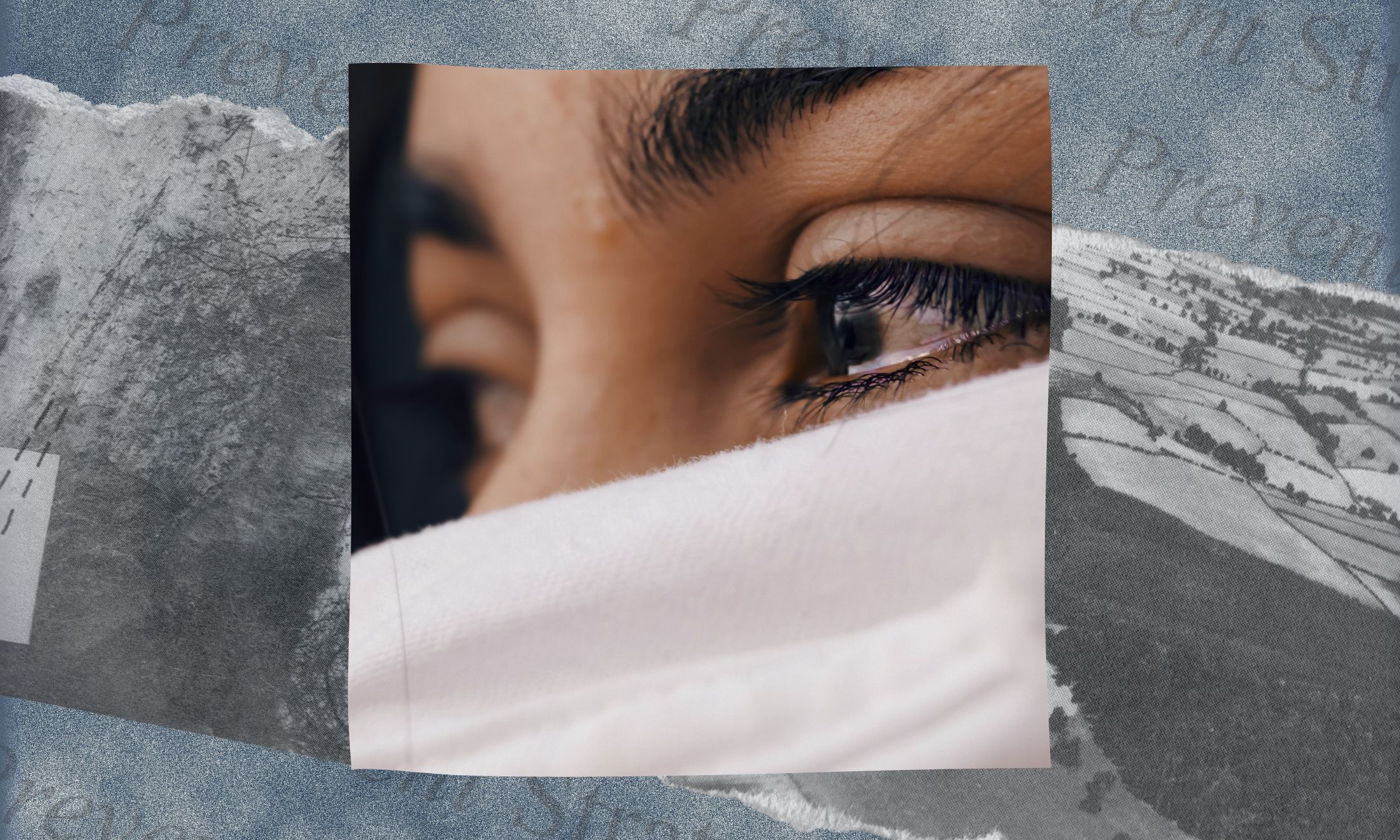
Illustration by Serina Kitazono
Prevent shouldn’t have targeted Extinction Rebellion. Prevent shouldn’t exist in the first place
The duty disproportionately targets Muslims – so why did people only kick up a fuss when it put the environmental group on its watch list?
Isabella Rooney
16 Jan 2020
The reaction to Extinction Rebellion (XR) being labelled an extremist group was explosive. Last week, it was revealed that the climate change protest group had been placed on a list of ideologies that could be reported to Prevent, the government’s anti-terrorist strategy. It advised teachers, police officers and government organisations to invigilate and report individuals speaking in “emotive terms about environmental issues like climate change”. The original Guardian article that broke the story has been shared 15,000 times since 10 January, and a scathing response from XR titled ‘How Dare They?’, which labelled the guidance a “slur”. However, XR’s criticism is not as robust as may first appear; after all, the group opposed placement alongside extremist groups, but made no systemic criticism of the Prevent policy itself.
The outrage surrounding XR centres on a distinction between peaceful protestors and the real extremist groups. Summarising this sentiment, barrister and Liberal Democrat peer Lord Carlile asserted that “XR are not violent terrorists. They are disruptive campaigners”. But this framing endorses a false distinction between supposed legitimate and illegitimate subjects of the Prevent strategy, demonstrating a deep ignorance of what Prevent actually is and how it operates. “Who hasn’t criticised our system of government in recent years?”, asks XR’s response rhetorically. “Are we all terrorists?” The catalogue of reported issues with Prevent demonstrates that merely criticising the government has been more than enough to warrant a referral to Prevent as a potential threat, and people have been referred for far less. What XR neglects to mention is that it’s not “all” of us who are likely to be most impacted.
“Extinction Rebellion made no systemic criticism of the Prevent policy itself”
The stated aim of Prevent is to stop terrorism before it happens, by imposing a statutory duty to report fears of radicalisation on teachers and local authorities. Of course, and as demonstrated by this most recent XR controversy, what “extremism” means and what could plausibly be reported under such a duty is subjective, ill-defined and politically motivated. In 2016, a schoolchild was referred to Prevent for wearing a “free Palestine” badge, and a 10-year-old Muslim boy was referred by his teacher for allegedly misspelling “terraced house” as “terrorist house”. The National Union of Teachers (NUT) comprehensively rejected Prevent after the statutory duty to report was imposed in 2015. The NUT declared that this would stifle discussions in classrooms, exacerbating fear for Muslim students & families.
The extent of this surveillance was revealed in October 2019, when the Metropolitan Police was found to have compiled a central database of 7,318 referrals made via Prevent, mostly from the education sector. Most individuals were unaware that they had even been referred. The human rights group Liberty described a database based on what individuals are “perceived to think or believe” as “chilling”, and the Muslim Council of Britain (MCB) made clear that the “hugely authoritarian tool” would “disproportionately affect Muslims”. As stated by the organisation Prevent Watch, over 65% of these referrals were Muslims.
These criticisms highlight that XR’s framing of their controversy with Prevent is completely inadequate. In the well-documented series of profiling, surveillance, data-compiling and infringements on personal freedoms under Prevent, those most impacted have been individuals engaging in the same type of nonviolent protest as XR does, or individuals simply doing activities designated “suspicious” by authorities. However, as the NUT and MCB’s criticism demonstrates, the people targeted are disproportionately Muslims.
XR’s short-sightedness fits into a pattern of myopia on race and class realities in Britain. Last October, the group was heavily criticised for sending thank-you flowers to Brixton police station, where Wayne Douglas, Ricky Bishop and Sean Rigg died in police custody between 1995 and 2008. The same month saw the group block the tube at Canning Town station, justified in a since-deleted tweet comparing XR to Rosa Parks.
“A schoolchild was referred to Prevent for wearing a ‘free Palestine’ badge. A 10-year-old Muslim boy was referred by his teacher for allegedly misspelling ‘terraced house’ as ‘terrorist house'”
Despite these shortcomings, XR’s challenge to Prevent was successful. Buoyed by support from politicians, journalists and the threat of legal action, the police retracted the guidance and apologised. And yet, XR declared the original guidance proof of “how the Establishment responds”. Given that XR’s response consists of statements of support from former police superintendents and, in another article, the Bank of England’s governor Mark Carney, the lack of self-awareness is astounding. The group’s ability to force a policy turnabout demonstrates the substantial privilege in financial resources, media attention and social clout that they hold.
This is in stark comparison to the individuals and communities who have long complained about Prevent’s impact. Despite a finding that Prevent’s guidance to universities was unlawful in March 2019, the long-awaited review into Prevent looks unpromising, due to the fact that it will exclude all past cases from its scope. The government neglected to appoint a replacement after its head admitted bias towards the programme: that very same Lord Carlile who came out to support XR. Ultimately, it is likely that the government review will now attract public interest because this controversy surrounded an overwhelmingly white environmental group – not because Prevent harms Muslims.
As the activist involved in the March court case asserted, “Prevent relies on […] people just not knowing their rights”. If XR knows its rights and has the financial resources and media attention to enforce them, going forward the path is clear. The group must display solidarity with those who are most impacted by Prevent. In part, this is a necessary first step to acknowledge and address overwhelming allegations that there is a race problem within the group. But XR must also show meaningful solidarity for its own sake; the irony is that both XR and PoC communities are affected by the same expansion of state power under anxious securitisation. For now, XR’s challenges to these encroachments have been successful, as with the appeal into the protest ban. But if the group is to continue meeting its aims, Extinction Rebellion must use its resources to support those it has neglected.









